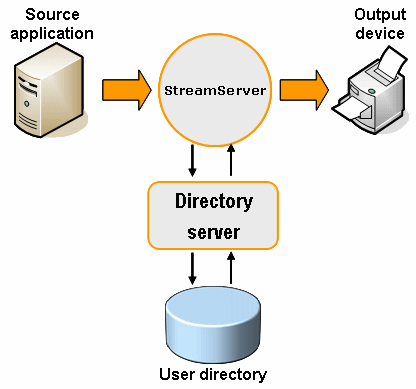|
Figure 3
|
The less-than sign (<) is a reserved character and must be escaped if used in a string. See Escape sequences.
The table below contains a short description of each script function. For information about syntax, examples, etc., see the full description of each script function.
|
Takes the entryID (returned by the LdapGetEntry function), the attribute name, and a filename, and adds the contents of the file to the given attribute.
|
|
|
Adds the specified value to the specified attribute. The changes are not written to the directory until the LdapUpdateEntry function is called.
|
|
|
Connects to the directory server using an encrypted connection. A Client Certificate Authentication is provided instead of user/password authentication.
|
|
|
Connects to the directory server using an encrypted connection. A Client Certificate Authentication is provided instead of user/password authentication.
|
|
|
Creates a new entry in the LDAP directory. Changes are not written to the directory until the LdapUpdateEntry function is called.
|
|
|
To decrease the memory usage, you can call this function which releases memory allocated for all new entries created by LdapNewEntry function calls.
|
|
|
To decrease the memory usage, you can call this function which frees result sets that are returned from ldapFind, ldapGetUser, and ldapGetObjectByDN function calls.
|
|
|
Takes the entryID (as returned by LdapGetEntry), the attribute name, and a filename, and adds the contents of the file to the given attribute.
|
|
|
Writes any changes that have been made to an entry back to the LDAP server.
|
|

